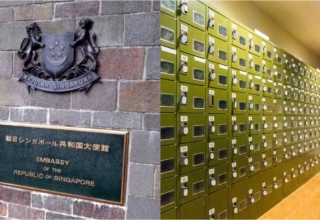
Recent investigative reports have brought to light a series of covert transactions involving the Indonesian government’s acquisition of advanced spyware. This revelation has sparked widespread indignation among citizens, who are calling for greater transparency and accountability from their leaders.
According to the study, which was conducted by the Security Lab of Amnesty International and several news sites, the spyware was bought between 2017 and 2023 and was used by several state agencies, including the main intelligence agency and the Indonesian national police, among other government agencies.
Research indicates that some vendors sold spyware to Indonesian businesses and government agencies. These vendors comprised Wintego Systems and Saito Tech, both based in Israel; Q Cyber Technologies, a Luxembourg-based company connected to Israel’s NSO Group; and Raedarius M8, a Malaysian company.
An Infraction of Confidence
Amnesty International claims that the “murky ecosystem” of suppliers, brokers, and resellers with “complex ownership structures” has made it more difficult to exercise control over public procurement.
Human rights organizations pressed the Indonesian government after the study was published to create a mechanism that would enable the observation of state agencies’ activities that are conducted in the name of surveillance.
“As the tools were bought using state funds, the public has the right to this information,” says Nenden Sekar Arum, executive director of Jakarta-based SAFENet, which advocates for Indonesian freedom of expression. Organisation SAFENet promotes people’s freedom of expression.
Leading the inquiry, which involved working with several other news organizations, was Amnesty International. Israeli daily Haaretz and the website for local news in Indonesia Tempo and another news source were part of this group.
Indonesian police spokesperson Brigadier General Tjahjono Saputro refused Tempo’s requests for a remark on the purchase of the espionage software. The inquiries for comment made by This Week in Asia were not promptly answered by Indonesia’s intelligence service or national police. These agencies did not answer the requests for comments.
Cost of Silence
Andreas pointed out that although there are no formal diplomatic ties between Indonesia and Israel, the news of Indonesian state agencies obtaining surveillance technology from Israel was “nothing new.” This is so even if Israel and Indonesia don’t cooperate to build diplomatic ties. This is so because, since the days of former Indonesian President Suharto, the country has been working with Israel on a commercial and military level. Suharto’s rule has been characterized by this.
Keep Reading
According to a June 2016 revelation by the Indonesian whistleblower protection group IndonesiaLeaks, Pegasus was given to the State Intelligence Agency and the Indonesian national police by NSO Group. The National Police claim that the complaint was turned down at the time, although they never addressed the accusations.
October 2022 saw Reuters reveal that ForcedEntry, a spyware programme developed by NSO Group to help foreign espionage organizations remotely manage iPhones from a distance, had targeted Indonesian military and government elites in 2021. The intention of the programme was to listen in on Indonesian military and government personnel.
Even though Indonesia does not have any diplomatic relations with Israel, the Amnesty International investigation recently revealed how urgently President Joko Widodo’s administration must explain how it came to obtain Israeli espionage software. Previously the chairman of the Alliance of Independent Journalists, Sasmito Madrim declared that this is an essential need.
As per the information in the article, Indonesian intelligence services were looking into the possibility of using malware to track down the precise position of its targets.
The gadgets were manufactured by Polus Tech, a Swiss-based technology business. Three people founded NSO Group, Niv Karmi, the President and CEO of Polus Tech at the moment, being one of them. The gadgets “help them catch someone,” Karmi said in the Tempo magazine edition that was released in Indonesia this week. Nevertheless, contrary to what the law enforcement agencies say, it does not penetrate cell phones.
The news sector suffers because of the perception that media websites are open to attack. This is quite dangerous since it can erode public trust in the media even more.
























